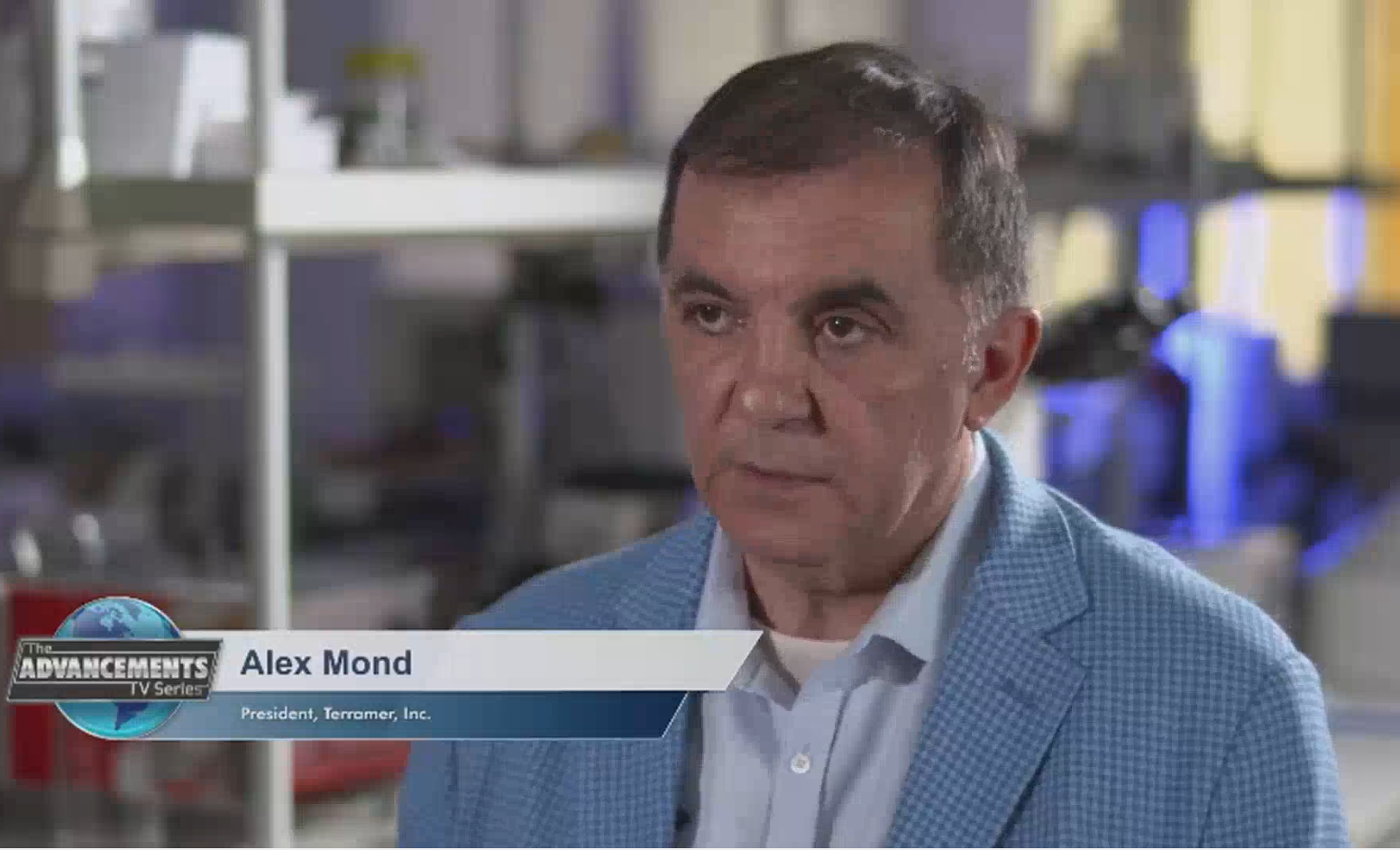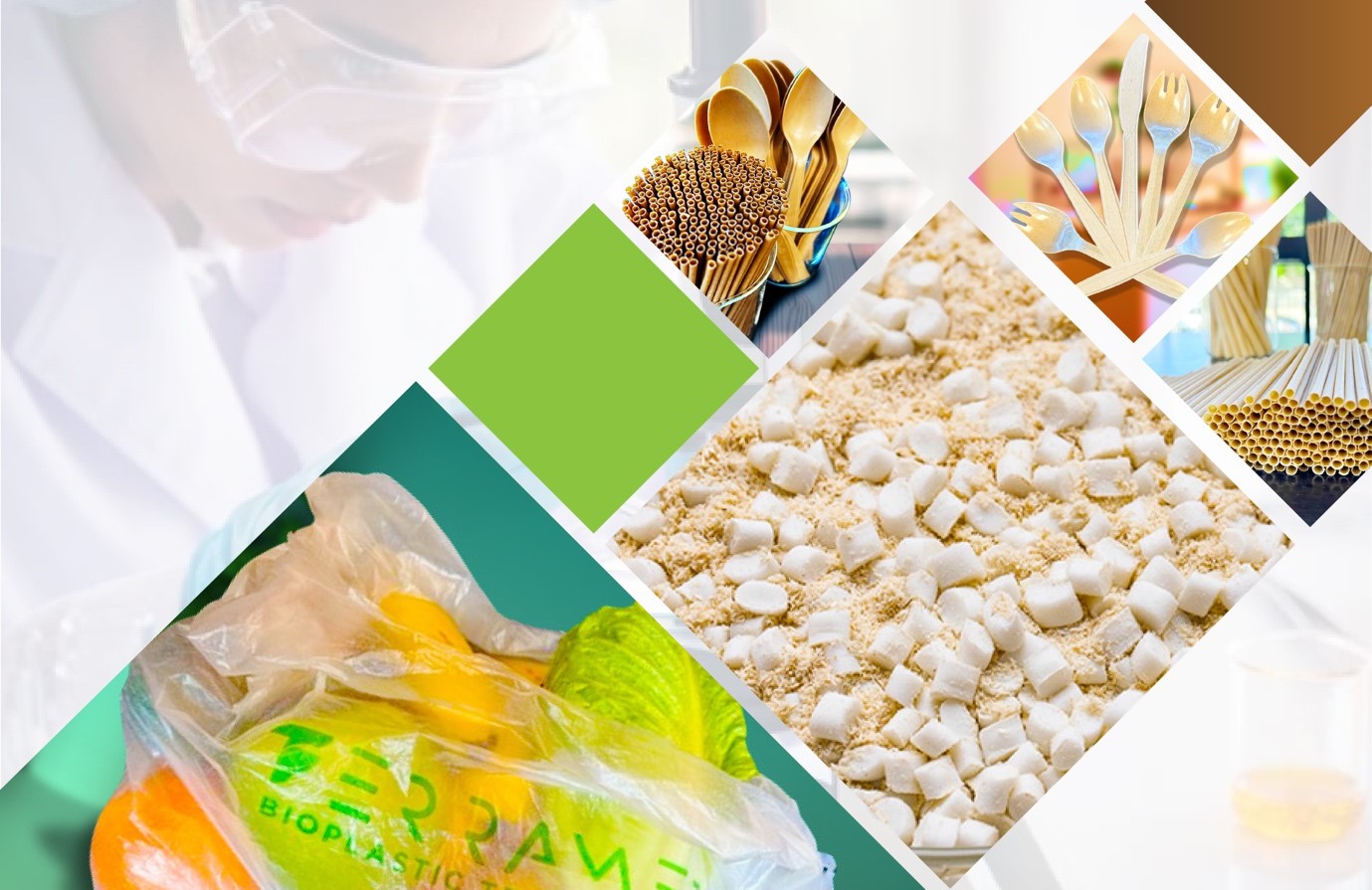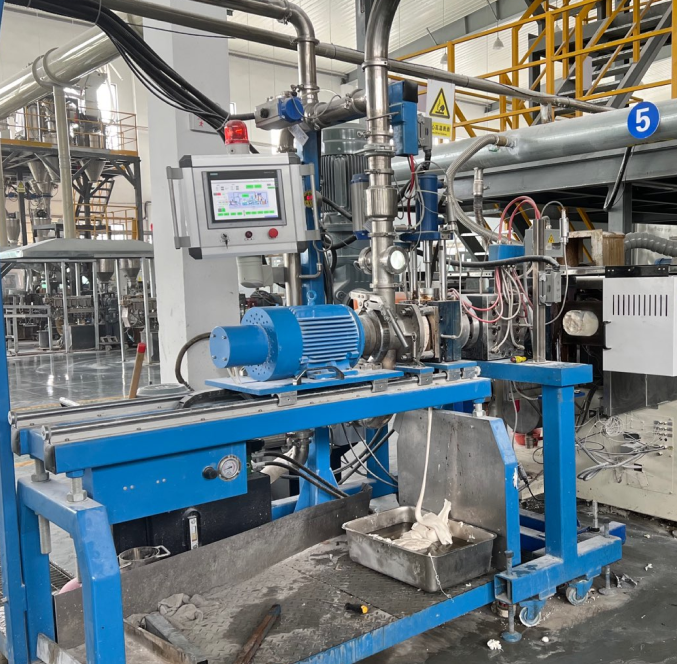



TERBO-1000 is a series of bioplastic formulations that are filled with hemp fibers. These custom blends are tuned to the final application for easy process and final product performance. It has similar properties to conventional plastics, more superior in strength and durability compared to other bioplastics.
Series for blown film Extrusion
Series for Extrusion
Series for Injection Molding
Series for Thermoforming

CERT # 10529587
Terramer is a leading bioplastic technologies company specializes in the development of hemp-based polymers. Terramer's proprietary products incorporate hemp-based polymers into the company 's single- use plastic bags, straws, cups, and utensils, etc. The company's mission is to continue its efforts to combat plastic pollution and advocate for better solutions with respect to current state of the art food packaging materials.
The plastics and resin manufacturing market size is over $700 Billion and growing annually. Terramer is committed to revolutionizing the plastics industry with its bio-optimized technologies to take plastics out of landfills and oceans.

Terramer has built an experienced team and infrastructure to advance biopolymer research and development to continuing pushing the boundaries of bioplastics. Our proprietary technologies utilizing artificial intelligence known as Terramer Designer Space adding mathematical formulas to construct a range of bioplastic products for manufacturing. In the Designer Space, we create new custom formulations to meet the strength and durability requirements of a variety of products, turbo-charge from lab scale to manufacturing production to bring the novel products to market.
Multilayer Slot Coating Visualization and Simulation, Air Knife Coating
Viscosity, Elasticity, Processing Behavior
Polymer Blends, Additives, Fillers
Experiments and Modeling of Molecular Weight Distribution Modification
Modeling and Bubble Formation, Property Protection
Modeling of Solids Conveying, Melting and Metering, Barrier Screws, Extrusion Dies
Kneading Disk Simulation, Flow Visualization
Sintering, Role of Rheology, Bubble Formation and Removal
Degradation Studies, Compounding and Property Improvement
We work with Manufacturers, Plastics converters, brand owners to develop customized solutions and products to meet their corporate objectives and target. We made the transition from plastics to our resins easy.

Sustainability consists of fulfilling the needs of current generations without compromising the needs of future generations, while ensuring a balance between economic growth, environmental care and social well-being. In other words it is the avoidance of the depletion of natural resources in order to maintain an ecological balance.
Terramer incorporating hemp waste as a feedstock for bioplastics not only addresses the environmental challenges associated with conventional plastics but also contributes to bio-based economy, sustainable agriculture, which contribute to ecological balances and goals of global decarbonization and support of circular economy.
